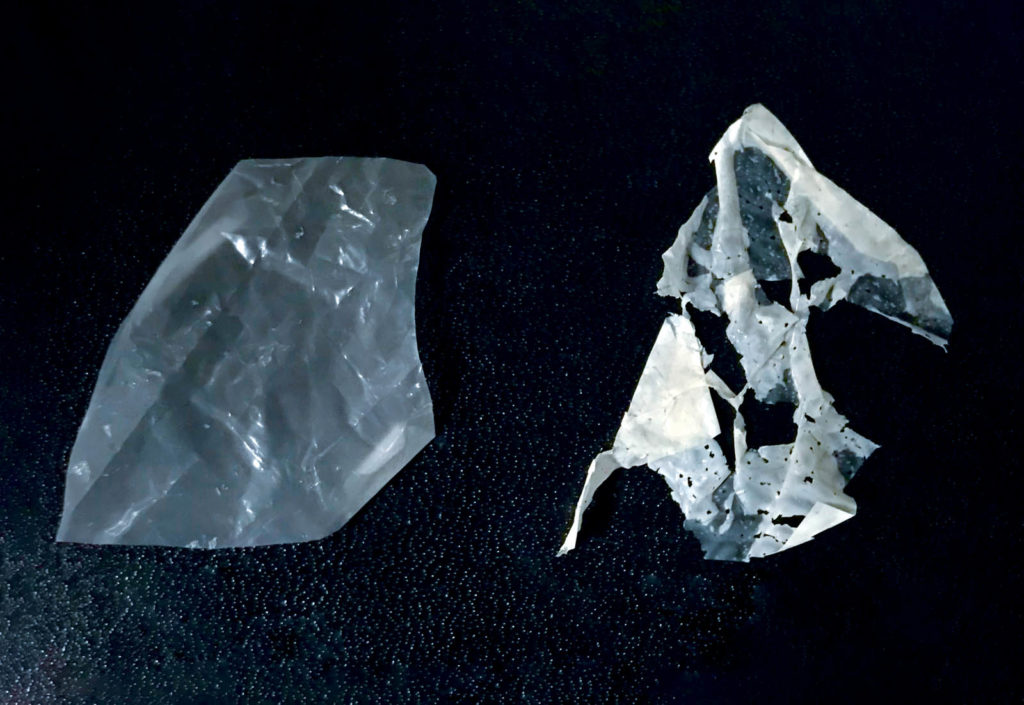
Most compostable plastics, made primarily of the polyester known as polylactic acid (PLA), end up in landfills and last about as long as any other plastic. But University of California, Berkeley, scientists have invented a way to make them break down more easily within a few weeks, using just heat and water. The new process involves embedding polyester-eating enzymes in the plastic as it’s made. The enzymes are protected by a simple polymer wrapping. When exposed to heat and water, the enzyme releases the wrapping and starts breaking down the polymer into its building blocks—in the case of PLA, reducing it to lactic acid, which can feed the soil microbes in compost. The polymer wrapping also degrades.
 TEXTILES.ORG
TEXTILES.ORG


